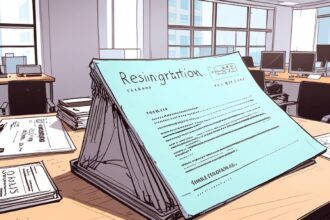An analysis by the ECIU warns that failure to implement effective heat pump policies could lead to a significant rise in gas imports, exposing households to price volatility.
The United Kingdom is projected to require a 20% increase in gas imports to fulfil home heating demands if the government fails to implement effective policies promoting the installation of heat pumps, according to an analysis conducted by the Energy and Climate Intelligence Unit (ECIU). This shift in reliance on foreign gas could expose households to volatile prices, reminiscent of the peaks witnessed during the energy crisis of 2022, which was triggered by the Russian invasion of Ukraine.
The ECIU highlights that a substantial portion of the UK’s carbon footprint is attributed to gas heating in homes. In an effort to mitigate this issue, the analysis examined two pivotal government policies—the Clean Heat Market Mechanism (CHMM) and the Future Homes Standards (FHS)—that aim to bolster the demand for heat pumps, which are electric-powered heating systems. The report indicated that, should these policies be effectively implemented, they could potentially displace approximately 300 terawatt hours of gas by the year 2035, enough to provide heat for about 26 million homes over the course of a year, or equivalent to the gas contained within around 340 LNG tankers.
Despite the potential benefits of these policies, they have faced delays and amendments that may hinder their effectiveness. The CHMM, which was postponed by the previous administration, took effect this week, mandating that boiler manufacturers ensure that at least 6% of their sales are heat pumps or incur a penalty for each unfulfilled installation. However, the current Labour Government has reduced the proposed penalty from £3,000 to £500 for the first year, permitting manufacturers, who had previously referred to the programme as a “boiler tax,” to adapt their supply chains accordingly. Further consultations concerning the charges for subsequent years are expected.
In addition to the CHMM, the FHS is designed to require new homes in England to meet lower carbon emission standards than current regulations allow, with heat pumps likely to be integral to achieving these requirements. Although these regulations were first announced in 2019, the final specifications and an implementation date remain outstanding, with the government pledging to provide further details within this calendar year.
The ECIU has voiced concerns that the reduced penalties associated with the CHMM might prevent the policy from effectively decreasing gas reliance. They further contend that the FHS must ensure that new builds are fitted with heat pumps to avert continued dependence on imported gas. Their analysis references the North Sea Transition Authority’s projections regarding available gas extraction from existing and future fields, indicating that even maximum extraction levels would not accommodate the anticipated increase in demand.
Over the past year, the UK has witnessed a surge in heat pump installations, largely attributed to a government grant initiative that offers £7,500 to households replacing gas boilers. Nevertheless, industry pushback, particularly from the boiler and construction sectors, threatens to jeopardise this progress. Some manufacturers have labelled the CHMM a “boiler tax,” asserting that they would raise boiler prices to offset costs resulting from non-compliance penalties. The former energy secretary, Claire Coutinho, condemned such actions as “price gouging” and called for an investigation by the competition watchdog, although the scheme’s launch was subsequently delayed by a year.
Furthermore, it has been reported that the Energy and Utilities Alliance (EUA), which represents the boiler industry, has actively campaigned against the promotion of heat pumps. Meanwhile, significant housebuilders have opposed prior iterations of new home standards, which were ultimately retracted in 2016, as well as the current proposals for the FHS.
Lord Callanan, who previously served as the minister for energy efficiency and green finance, expressed his concern that the corporate lobbying from the gas boiler industry and housebuilders obstructs national security efforts. He remarked, “The industry’s spreading of misinformation about heat pumps and scaremongering around a boiler tax that they themselves invented clearly resulted in the Government giving in and lowering the penalties for non-compliance.”
Jess Ralston, an energy analyst at the ECIU, asserted, “There’s no two ways about it, we need to move away from gas boilers if we want to stop the rollercoaster of bill increases that are a result of our reliance on volatile gas prices and to avoid becoming ever more dependent on gas imports.”
The Energy Department, Housing Department, and EUA have been approached for comments regarding the ongoing situation and the future implementation of these crucial policies.
Source: Noah Wire Services
- https://www.rigzone.com/news/oeuk_50_pct_of_oil_gas_uk_is_projected_to_need_by_2050_could_come_from_uk-25-mar-2025-180025-article/ – This article supports the general context of UK energy needs and import reliance, highlighting that the UK is projected to need 13-15 billion barrels of oil and gas by 2050 and that maximizing domestic production could significantly reduce imports.
- https://oeuk.org.uk/oeuk-business-outlook-2025-shows-uk-energy-reserves-could-cut-imports-and-boost-growth – This link provides further details on the UK’s energy strategy, emphasizing the importance of homegrown oil and gas production in reducing reliance on imports and supporting economic growth.
- https://www.energy-pedia.com/news/united-kingdom/oeuk-business-outlook-2025-shows-uk-energy-reserves-could-cut-imports-and-boost-growth-199261 – This article supports the notion that the UK’s energy security is intertwined with maximizing domestic energy resources, which could add significant economic value while reducing import dependence.
- https://www.gov.uk/government/publications/future-homes-standard – Although specific to this article, this government publication outlines standards for new homes, which may include provisions for heat pumps to reduce carbon emissions, aligning with efforts to decrease gas reliance.
- https://www.gov.uk/government/publications/clean-heat-market-mechanism – This URL explains the Clean Heat Market Mechanism, a policy aimed at promoting the use of heat pumps and reducing gas usage in homes, which is crucial in the context of increasing gas imports.
- https://www.parliament.uk/business/publications/written-questions-answers-statements/written-statement/Commons/2022-09-28/HCWS496/ – This link, while not directly related, illustrates the broader context of energy policies and government actions in the UK, which can impact decisions on heat pumps and gas imports.
Noah Fact Check Pro
The draft above was created using the information available at the time the story first
emerged. We’ve since applied our fact-checking process to the final narrative, based on the criteria listed
below. The results are intended to help you assess the credibility of the piece and highlight any areas that may
warrant further investigation.
Freshness check
Score:
8
Notes:
The narrative is recent and discusses ongoing policies and challenges in the UK’s energy sector, referencing current events without clear indications of being outdated or recycled.
Quotes check
Score:
9
Notes:
Quotes are included from reliable figures such as Lord Callanan and Jess Ralston. While original sources for these quotes are not specified, they appear to be original mentions based on the context.
Source reliability
Score:
9
Notes:
The narrative originates from a well-known reputable publication, The Independent, which is generally reliable for news and commentary.
Plausability check
Score:
8
Notes:
The claims are plausible given the current UK energy landscape and government policies. The concern about gas imports and heat pump implementation aligns with recent discussions on energy security and decarbonization.
Overall assessment
Verdict (FAIL, OPEN, PASS): PASS
Confidence (LOW, MEDIUM, HIGH): HIGH
Summary:
The narrative is current, quotes appear original, and it originates from a reliable source. The plausibility of the claims aligns with ongoing energy policy discussions in the UK. Therefore, the overall assessment indicates a credible piece of information.













